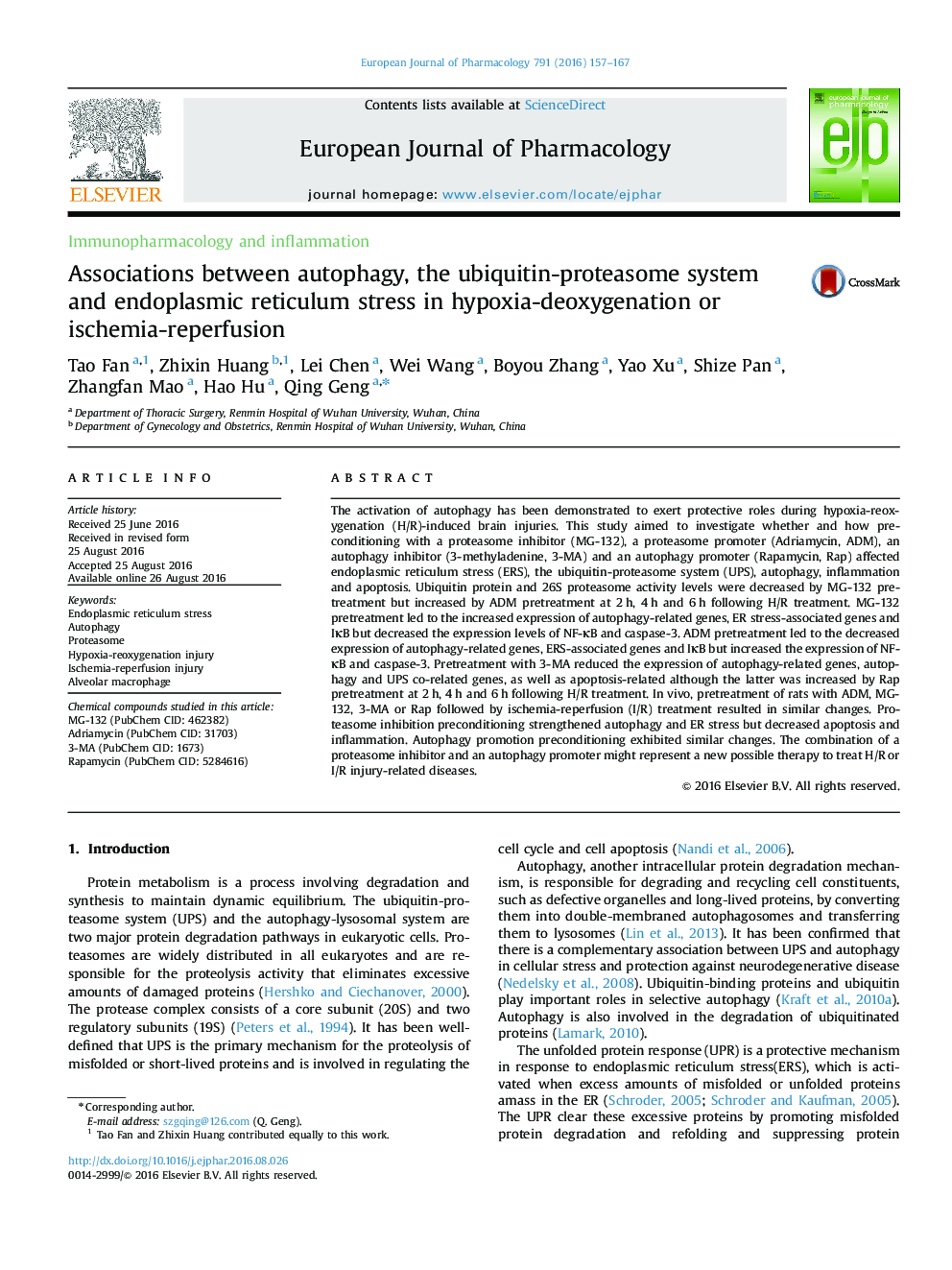| Article ID | Journal | Published Year | Pages | File Type |
|---|---|---|---|---|
| 2530804 | European Journal of Pharmacology | 2016 | 11 Pages |
The activation of autophagy has been demonstrated to exert protective roles during hypoxia-reoxygenation (H/R)-induced brain injuries. This study aimed to investigate whether and how preconditioning with a proteasome inhibitor (MG-132), a proteasome promoter (Adriamycin, ADM), an autophagy inhibitor (3-methyladenine, 3-MA) and an autophagy promoter (Rapamycin, Rap) affected endoplasmic reticulum stress (ERS), the ubiquitin-proteasome system (UPS), autophagy, inflammation and apoptosis. Ubiquitin protein and 26S proteasome activity levels were decreased by MG-132 pretreatment but increased by ADM pretreatment at 2 h, 4 h and 6 h following H/R treatment. MG-132 pretreatment led to the increased expression of autophagy-related genes, ER stress-associated genes and IκB but decreased the expression levels of NF-κB and caspase-3. ADM pretreatment led to the decreased expression of autophagy-related genes, ERS-associated genes and IκB but increased the expression of NF-κB and caspase-3. Pretreatment with 3-MA reduced the expression of autophagy-related genes, autophagy and UPS co-related genes, as well as apoptosis-related although the latter was increased by Rap pretreatment at 2 h, 4 h and 6 h following H/R treatment. In vivo, pretreatment of rats with ADM, MG-132, 3-MA or Rap followed by ischemia-reperfusion (I/R) treatment resulted in similar changes. Proteasome inhibition preconditioning strengthened autophagy and ER stress but decreased apoptosis and inflammation. Autophagy promotion preconditioning exhibited similar changes. The combination of a proteasome inhibitor and an autophagy promoter might represent a new possible therapy to treat H/R or I/R injury-related diseases.
